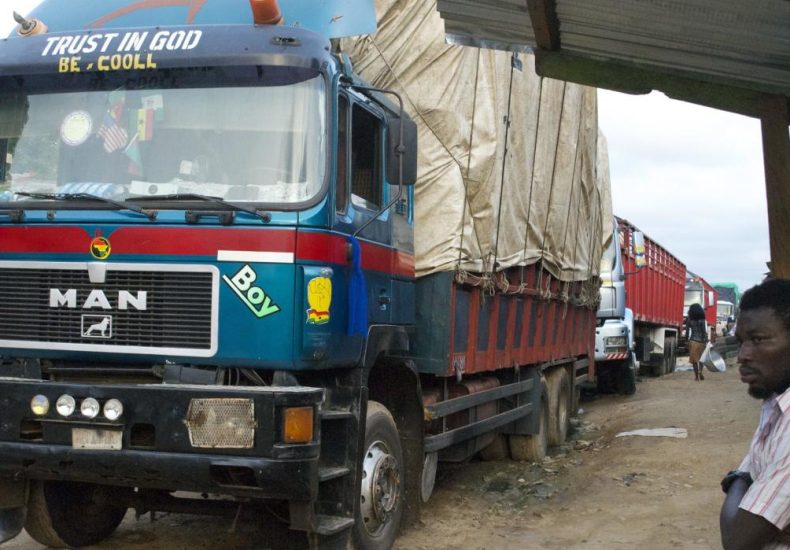
New Super Highway: Could It Reconnect Military Regimes?
Could a New Super Highway Bring Military Regimes Back to West Africa?
West Africa has witnessed significant political shifts in recent years, especially with the rise of military regimes that have altered the region’s political landscape. Amidst this backdrop, the potential construction of a new super highway has sparked discussions about its possible impact on West African countries, particularly the influence it could have on military governments. Could this new infrastructure project lure military regimes back into the fold of regional cooperation and stability? Let’s explore this possibility.
The Rise of Military Regimes in West Africa With New Super Highway Military
In recent years, West Africa has experienced a troubling resurgence of military takeovers. Countries like Mali, Burkina Faso, and Guinea have seen military-led governments replace civilian administrations, leading to concerns about democratic backsliding and instability in the region. These coups, often driven by a combination of political unrest, economic crises, and security challenges, have isolated these nations from regional and international cooperation.
However, despite this trend, regional bodies like the Economic Community of West African States (ECOWAS) have struggled to effectively address the military regimes, leading some to question whether traditional diplomacy and sanctions alone can bring about meaningful change.
The Concept of a New Super Highway
The idea of a super highway in West Africa is not just about improving transportation. It represents a strategic infrastructure project that could have broad economic, political, and social implications for the region. A new super highway would connect key cities and countries across West Africa, enhancing trade, improving mobility, and fostering greater regional integration.
By reducing travel time between countries and facilitating the movement of goods, people, and resources, such a highway could create new opportunities for cooperation. It could serve as a catalyst for economic growth, reducing reliance on foreign aid and offering a platform for more sustainable regional collaboration.
Military Regimes and Regional Isolation
Military regimes often face diplomatic isolation, both regionally and internationally. ECOWAS and other international bodies have historically imposed sanctions or other measures to exert pressure on military-led governments in West Africa. While these measures can be effective in signaling disapproval, they often come at the cost of further isolating the country and hindering potential economic growth.
The introduction of a new super highway could change this dynamic. By creating a physical and economic link between military regimes and their neighbors, the highway could foster a sense of connectivity that encourages cooperation. It would provide these regimes with a tangible incentive to participate in regional development efforts, improving their relations with neighboring states and international partners.
The Role of Economic Cooperation in Shaping Political Alliances
A new super highway could serve as an economic lifeline for military-led governments, offering them a chance to reintegrate into regional economic activities. With increased trade routes and access to a broader market, military regimes could see the value in regional cooperation as a means of boosting their economies. This, in turn, could lead to a shift in their foreign policy, encouraging them to pursue diplomatic and economic partnerships that benefit both their regimes and the broader West African community.
This economic cooperation might also provide a more pragmatic route for military governments to regain legitimacy. By participating in regional projects that promote infrastructure development and trade, military regimes could present themselves as responsible, forward-thinking leaders, rather than isolated or adversarial actors.
The Challenges of Regional Cooperation
While the prospect of a new super highway is promising, there are significant challenges to overcome. For one, the political will of the military regimes themselves would need to align with regional goals. Many of these regimes have seized power through force and have yet to fully commit to democratic processes. Their willingness to participate in regional initiatives, including infrastructure projects, could be contingent on their own internal stability and the pressures they face from domestic actors.
Moreover, regional cooperation, even with a new highway, would still require overcoming historical distrust and political differences. While infrastructure development can foster economic ties, it is unlikely to resolve the deeper political issues that have led to military takeovers in the first place. For a new super highway to have a lasting impact, it would need to be accompanied by efforts to address the root causes of instability in the region.
Conclusion: A Strategic Opportunity
The construction of a new super highway in West Africa could offer military regimes a unique opportunity to reintegrate into regional frameworks and cooperation. By facilitating trade, improving infrastructure, and creating new economic opportunities, the highway could serve as a catalyst for change. However, its success in luring military regimes back into the West African fold would depend on the political will of these governments and their willingness to engage in meaningful, cooperative relationships.
Ultimately, while the super highway alone may not solve the region’s political challenges, it could provide a foundation for greater stability and cooperation in the years to come. If executed thoughtfully, it could become a powerful tool in reshaping the political and economic landscape of West Africa.